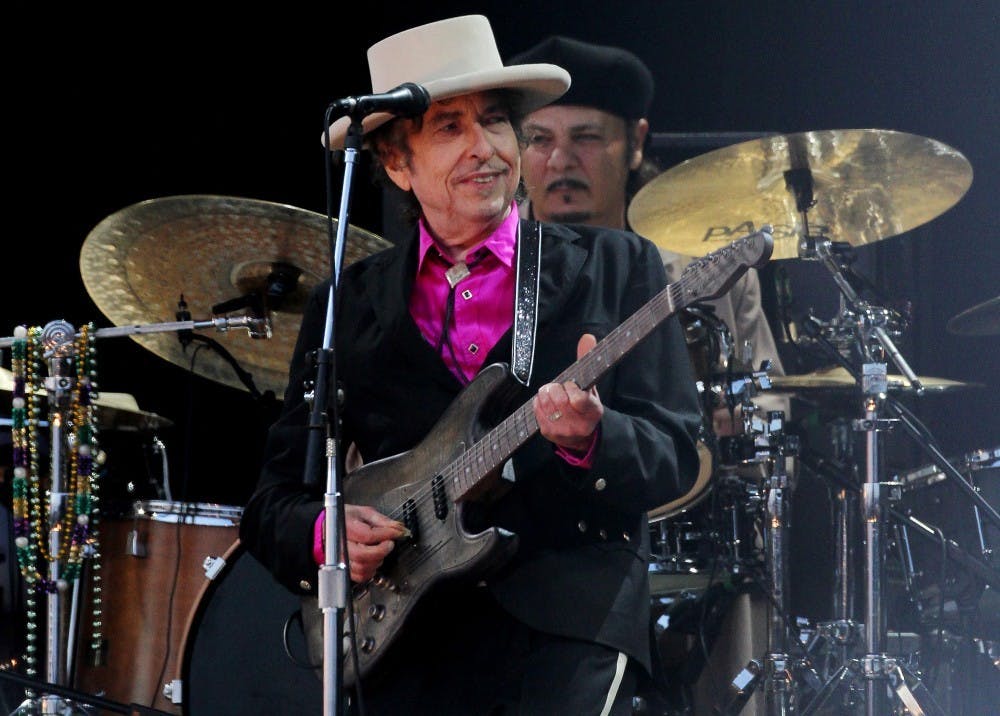Former IU rock history professor Glenn Gass celebrated Bob Dylan’s 80th birthday with a presentation about his career Tuesday night.
IU Auditorium marketing manager Ryan Sheets said Gass developed a specialized course on Dylan, a famous singer-songwriter, for the Jacobs School of Music. Gass developed the first rock history classes ever offered by a school of music and created a certification program in rock history, according to a press release from the IU Auditorium.
Gass wanted to commemorate Dylan’s recent 80th birthday with a presentation.
Throughout his 60-year career, Dylan won the Nobel Prize, the Pulitzer Prize, various Grammys and was inducted into the Rock & Roll Hall of Fame, Gass said.
When Bruce Springsteen inducted Dylan into the Rock & Roll Hall of Fame in 1988, he called him a revolutionary.
“The way Elvis freed your body, Bob freed your mind,” Springsteen said.
Gass said people made sense of the world through Dylan’s lyrics, which captured people’s dreams of peace and equality in a post-war and racially divided era.
“Blowin’ in the Wind” was released as a single from Dylan’s second album in 1962. In it, he posed a series of questions such as, “How many roads must a man walk down before he is considered a man?” and “How many ears must one man have before he can hear people cry?”
It addresses ugly topics in a beautiful way, Gass said.
“In the most soft way, he asks the questions about civil rights, about war,” Gass said. “He doesn’t give you the answer, he says it’s blowing in the wind, there for us all to take.”
Dylan’s music and lyrics inspired famous artists such as the Beatles, Jimi Hendrix and the Byrds to write songs that provoke deep thought and call for peace and unity, Gass said.
Throughout the presentation, Gass played several Dylan songs from his early career and described how they brought out a sense of idealism in his generation and addressed events such as the Cuban Missile Crisis and riots in Oxford Town.
Dylan stopped writing topical songs when President John F. Kennedy was assassinated in 1963, Gass said. He said he believes Dylan feared for his own life following the assassination, afterward removing political language from his lyrics.
Gass played an excerpt of Dylan’s 2020 hit 17-minute single “Murder Most Foul” and said he thinks everybody should listen to the whole thing because of its importance.
It is a requiem for a generation, Gass said. He finally addresses the JFK assassination and how the tragedy brought the nation together, but then he evokes a sense of nostalgia for what he loved about the 60s, when radios used dials and the Beatles sang about holding your hand and people dreamed of a better world.
Gass said he hopes to hold a second presentation on Dylan because he didn’t want to condense everything into the two-hour presentation.
“You can’t rush Dylan,” Gass said.
CORRECTION: A previous version of this article misstated the date of Dylan's induction into Rock & Roll Hall of Fame.




